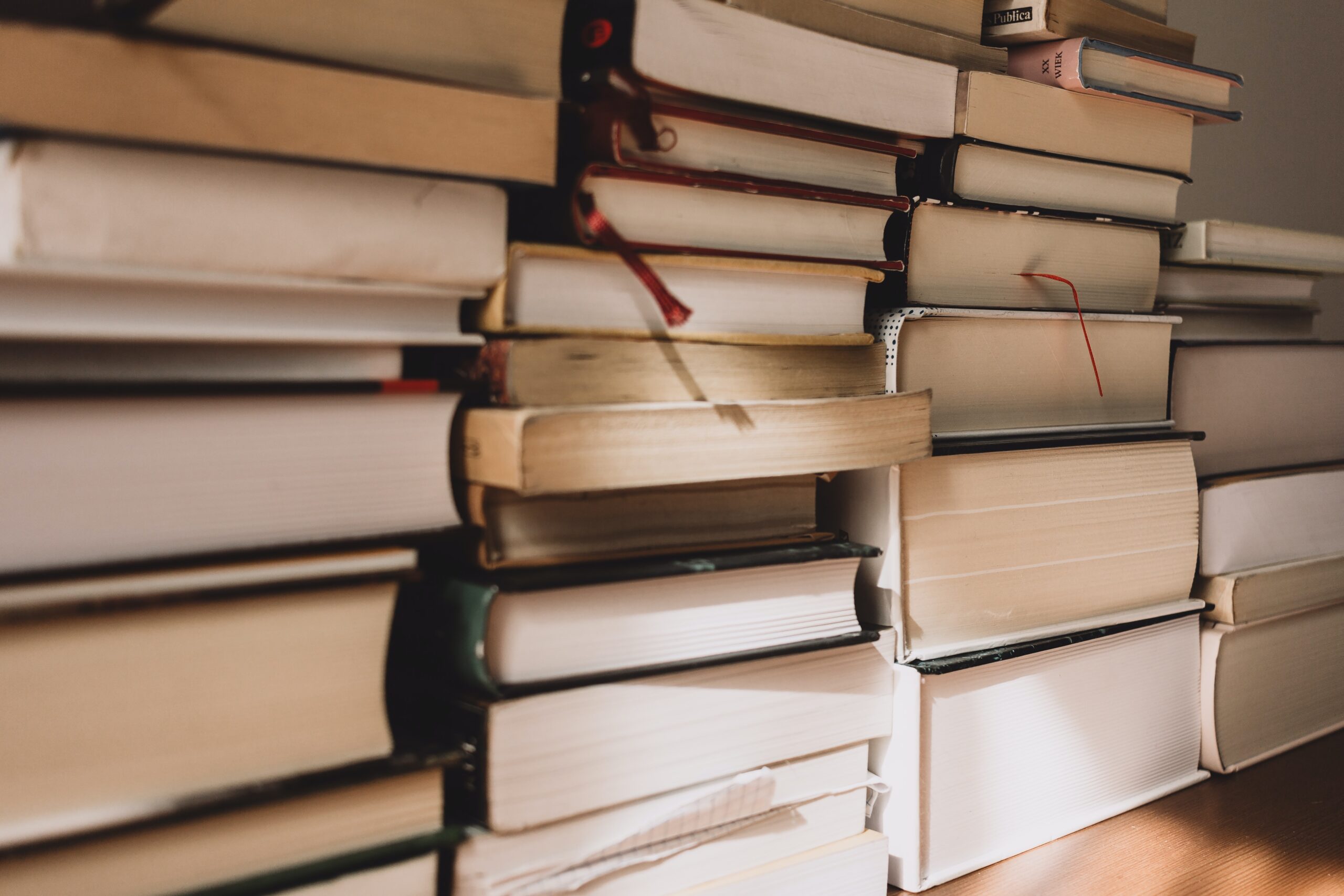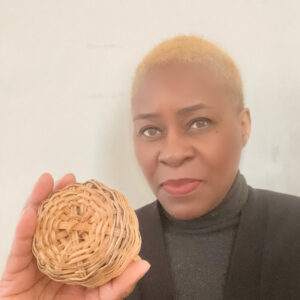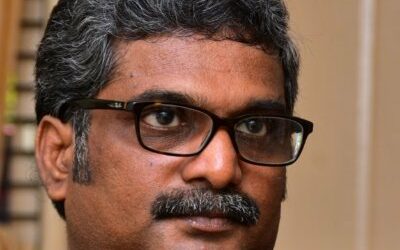
Literary translator, writer and musician Coco Mbassi discusses the complexities of what it means to decolonise translation in a report produced as part of a Visible Communities virtual residency.
Focussing on works from post-independence francophone authors of sub-Saharan African origin Ferdinand Oyono and Amadou Hampâté Bâ, Coco unpicks how we can make a real commitment to the task of decolonising translation. This report is a detailed consideration of the act of translating, providing examples and questions that allow us to reflect on how and why we choose to translate, and the impact use of postcolonial languages has on this process.
Our Visible Communities programme aims to diversify access routes to literary translation, strengthen links between the literary translation community and diaspora communities in the UK and contribute to the debate around decolonising literary translation. You can read more on this programme here, or learn about our residencies here.
Read an excerpt of Coco Mbassi’s report below and click the link at the end to access the whole piece.
Decolonising translation
Reflections on the Visible Communities virtual residency
Introduction
Being selected for this residency was a highlight of this year for me. Subtle and not so subtle prejudices and biases that pervade written text are something I noticed from quite a young age… from depictions of the blonde blue-eyed girl in stories as angelic and kind versus the black boy as the devil child, to descriptions of the tall, muscular, dark-skinned servant who initially scares every member of the delicate white family he works for, only for them to discover later that he is kind-hearted and childish. Reading postcolonial literature drove the point home even deeper… in a rather immature game of contrasts and easy dichotomies, Africans were often portrayed as illiterate (in what language, one wonders), unintelligent, instinctive, easy to fool, bearing quasi-religious veneration for the white masters.
I started laughing at quite a young age at these ridiculously unrefined interpretations of highly complex relationships that, more often than not, included severe oppression and life-threatening risk, interpretations that refrained from specifying that those Africans (thus reduced with the stroke of a typewriter) were fighting for survival in a corner with very little room to be themselves.
Ridicule. Oppression. Spoliation. Displacement. Colonisation. Enslavement. Rape. Emasculation.
The list of unnamed acts of violence is endless, and they were too often reframed as salvation, education, civilisation, and more, all positives that some authors worked very hard to shine the light on, ignoring the mountains of negatives these peoples were pitched against or rather, crushed by…
Having been awakened to these unfortunate realities as a young girl, I could not erase that knowledge from my psyche, and it was only reinforced by the study of post-independence literature from sub- Saharan Africa as a teenager, which was often part of the curriculum in Cameroon, where I spent part of my childhood years. There was a very specific lens, I realised, that was applied to the examination of the black, the brown, the chocolate milk or café au lait characters… mammies, women of disrepute, weaklings, gullible men on the slow side intellectually, instinct-led gentle giants who needed to be monitored, lest their bestial ‘nature’ take over with drastic consequences.
Then later, I started watching dubbed films or TV series featuring dark-skinned actors to whom random accents that had no solid rationale or significance were attributed (in the dubbed version), accents borrowed from one region of the world to represent a radically different one, the only common denominator being the colour of the skin of peoples in both regions. My professor father encouraged me to develop a nascent interest in some of the hybrid language forms that existed in the
African and American world, and thus helped develop in me an instinctive respect for those hybrid lects that by their very nature, rendered homage to their African roots.
Later on, as a young adult who grew up speaking five languages, I actually took interest in translation as a profession, but aside from certain exercises at university during my training, I came to literary translation much later… and it was even later that I started reading the same stories in one language, then in their translated version.
Traduttore tradittore … translator, traitor – this phrase is commonly referred to in the world of translation, and it reflects quite accurately the idea that no matter how professionally accurate your translation is, no matter how well you know both languages, how closely you follow the rules of translation, there always comes a point when translators have to make a choice that implies some level of interpretation and re-creation of, and potentially deviation from, the source. That makes it easy to critique a translator’s work, but as I discovered particularly acutely during this residency, not so easy to propose better solutions.
Before diving into my report, here are a few comments a friend of mine (British author Chris Aslan) made, which relate very closely to the purpose of this residency. His comments prompted further comments from me.
Why is it that authors writing in French or English, for example, from non-Western backgrounds, are almost considered duty bound to deal with ‘issues’, as if that’s all they’re good for? Building on that question, it is worth considering how much or how accurately the original authors deal with issues linked to colonisation within their narratives, and if it matters. Can’t brown or black authors be allowed to tell the stories they wish to tell, the way they wish to tell them? How easy is it then for these authors to be taken seriously and/or find publishers?
I don’t have the answers to these questions, but I find them worth putting out there for your consideration.
Read the full report →
 Coco Mbassi was born in Paris, France and originates from Cameroon. By the age of nine, she spoke five languages. She trained as a translator in Paris and in the UK. A lover of all artforms, Coco has toured as a musician for over 30 years, winning several awards and releasing three albums, an innovative musical project and a single. She never gave up on her love of languages and has translated three books in the past five years and written a bilingual illustrated book for children. Coco trained as a scriptwriter for television and theatre and wrote her first musical, Haendel on the Estate; extracts of the musical were performed at Ovalhouse Theatre in London in February 2019, with a full performance of the musical in London in November 2020. She is now writing another musical with her writing partner and plans to do more literary translation work, with a focus on non-standard hybrid language forms from sub-Saharan African, such as Pidgins or Camfranglais. She also hopes to complete her first novel by 2023. www.cocombassi.co.uk
Coco Mbassi was born in Paris, France and originates from Cameroon. By the age of nine, she spoke five languages. She trained as a translator in Paris and in the UK. A lover of all artforms, Coco has toured as a musician for over 30 years, winning several awards and releasing three albums, an innovative musical project and a single. She never gave up on her love of languages and has translated three books in the past five years and written a bilingual illustrated book for children. Coco trained as a scriptwriter for television and theatre and wrote her first musical, Haendel on the Estate; extracts of the musical were performed at Ovalhouse Theatre in London in February 2019, with a full performance of the musical in London in November 2020. She is now writing another musical with her writing partner and plans to do more literary translation work, with a focus on non-standard hybrid language forms from sub-Saharan African, such as Pidgins or Camfranglais. She also hopes to complete her first novel by 2023. www.cocombassi.co.uk
We would like to thank Arts Council England for supporting the Visible Communities programme, the British Centre for Literary Translation for collaboration on the BCLT Summer School, the Stephen Spender Trust for Multilingual Creators, the Francis W Reckitt Arts Trust for supporting residencies at Dragon Hall, and the Jan Michalski Foundation for their support for the Tilted Axis Press anthology and our virtual residencies.


You may also like...
Sawad Hussain & Archana Madhavan
On translating webtoons & Korean literature

10th January 2022
Derek Barretto‘s path to literary translation
Talking with Rebecca DeWald on the podcast

23rd November 2021
Translating Sri Lankan Tamil poetry
With literary translators Shash Trevett and Geetha Sukumaran

16th August 2021






